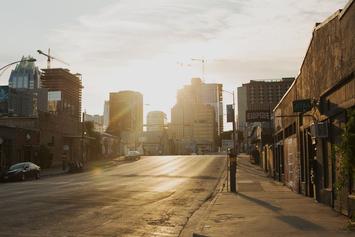
When the nation’s CEOs were being polled about state business climates earlier this year for Chief Executive’s annual rankings of the “Best and Worst States for Business,” there was a lot of concern about Austin, Texas, among the magazine’s conservative-leaning readership.
But in the last two elections there, a reassuring answer has come to worries about Austin’s progressive pull on Texas and how it might affect the state’s near-magnetic appeal to CEOs. Texas has finished No. 1 in the magazine’s poll for 17 straight years.
Now, the growing conviction inside the Lone Star State seems to be that its capital isn’t about to lead Texas in some sort of “blue rage” to the left -- a conclusion that’s backed up by none other than Texas Governor Greg Abbott.
“Democrats made zero gains in the Texas House and congressional delegation, and Texas remained Republican” in last fall’s elections, Abbott noted to me in an interview I conducted with him for Chief Executive. “And the margins of victory in the closest districts were wider this time than the years before. Even with the massive voter turnout, [then-President Donald Trump] got a million more votes than four years earlier.”
Scott Brown affirmed progressives’ disappointment with that result. The iconic magazine of which he’s the publisher, Austin-based Texas Monthly, gave the Texas Democratic Party its annual “Bum Steer of the Year” award for 2020 because of how far short of expectations their candidates fell in November.
“The award is for Texans who fumbled the ball the worst during the previous year,” Brown told me when I interviewed him for Chief Executive. “It was disappointing that the results didn’t turn the state more purple.”
Then just last week, another electoral result that disappointed progressives came when 57 percent of Austin residents voted in favor of reinstating criminal penalties for camping in public spaces. The vote occurred nearly two years after Mayor Steve Adler and the city council canceled a more-than-20-year-old ordinance that had banned camping in public spaces – effectively keeping the homeless problem in check in Austin.
So what’s going on in Austin? And what does it have to do with the rest of Texas, and the rest of America?
Not surprisingly, Austin has always comprised the leading edge of progressive culture in one of the most conservative states in the union. As the state capital since 1846, Austin has built an expected left-leaning bureaucracy. As the home of the University of Texas since 1883, Austin also sports a typically liberal large population of college students.
More recently, Austin has emerged as a countercultural haven, partly based on the success of its South by Southwest festival, an annual gathering around films, digital media and music that began in 1987 (but wasn’t held last year and was only virtual this year). It is the birthplace of Dell Computer, and Austin has added tens of thousands of tech jobs over the decades as a major node for big facilities owned by California tech giants such as Apple and Google. And Austin has become a notable mecca for better-for-you foodies of all sorts, the not-surprising place where Whole Foods Markets, for instance, was conceived and is headquartered.
So, conservatives in Texas long have wrung their hands about Austin, its increasing turn to the left and the potential leaching of its influence outside its own confines. What’s added to their distress recently are small signs of such a growing blue tilt.
“The most frustrating thing about Austin is that everyone wants to come here for the low-regulation environment to operate their business, and the minimum tax requirement, but then want to fund all sorts of social-justice programs,” said Craig Chick, public-affairs director in Austin for Foley & Lardner, a large corporate-law firm based in Milwaukee.
Lately, this has been best illustrated by Austin’s growing population of homeless and city government’s accommodation of them. “In Austin,” Chick told me, “they’ve allowed the homeless people to camp virtually anywhere, like in San Francisco, Seattle and Portland. That has significantly changed the landscape of the city of Austin.”
Read the rest of this piece at Flyover Coalition
Dale Buss is founder and executive director of The Flyover Coalition, a not-for-profit organization aimed at helping revitalize and promote the economy, companies and people of the region between the Appalachians and Rockies, the Gulf Coast and the Great Lakes. He is a long-time author, journalist, and magazine and newspaper editor, and contributor to Chief Executive, Forbes, the Wall Street Journal, the New York Times and many other publications. Buss is a Wisconsin native who lives in Michigan and has also lived in Texas, Pennsylvania and Florida.












